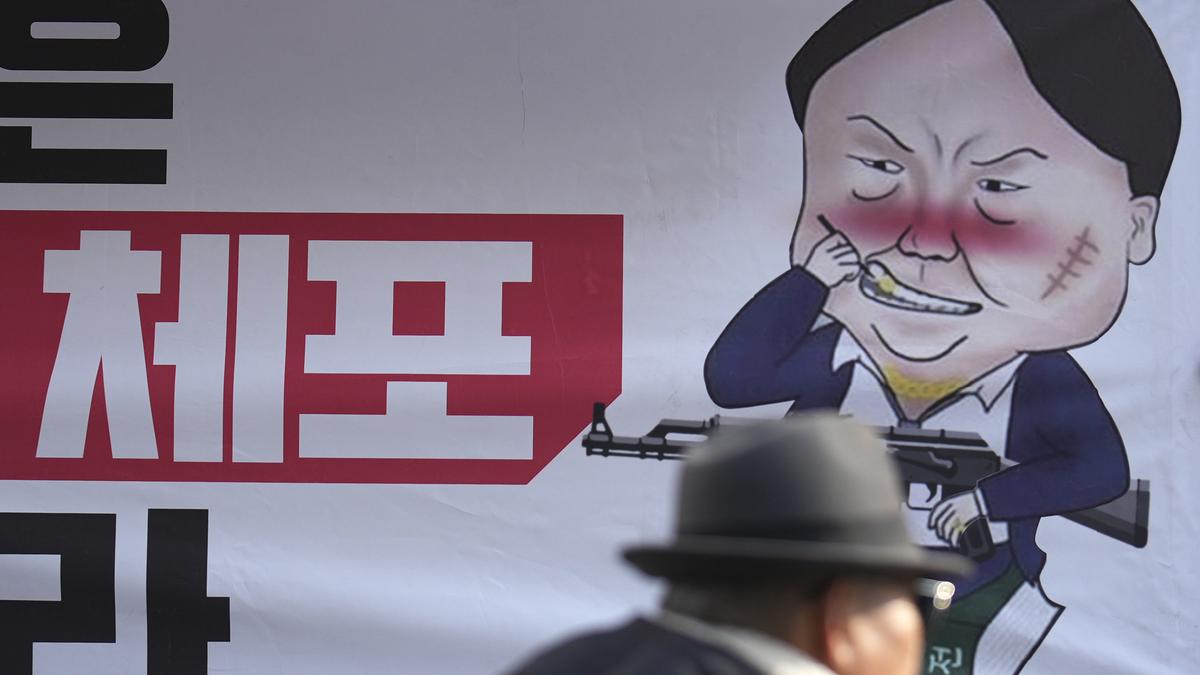
South Korea’s Justice Ministry imposes a travel ban on President Yoon over martial law
The Hindu
South Korea's President Yoon Suk Yeol faces travel ban amid rebellion allegations, political turmoil, and impeachment threats.
South Korea’s Justice Ministry on Monday (December 9, 2024) imposed an overseas travel ban on President Yoon Suk Yeol as authorities investigate allegations of rebellion and other charges in connection with his short-lived declaration of martial law last week.
Mr. Yoon’s martial law decree last Tuesday (December 3, 2024), which brought special forces troops into Seoul streets, plunged South Korea into political turmoil and caused worry among its key diplomatic partners and neighbours. On Saturday (December 7, 2024), Mr. Yoon avoided an opposition-led bid to impeach him, with most governing party lawmakers boycotting a parliamentary vote. But the opposition parties vowed to submit a new impeachment motion against him this week.
Bae Sang-up, a Justice Ministry official, told a parliamentary hearing that it banned Mr. Yoon from leaving the country following requests by police, prosecutors and an anti-corruption agency as they expand their probes into the circumstances surrounding Mr. Yoon’s power grab.
Also Read | How will martial law flip-flop affect S. Korea?
On Monday, a senior National Police Agency officer told local reporters in a background briefing that police can also detain Mr. Yoon if conditions are met. The contents of the briefing were shared with The Associated Press.
While a sitting South Korean President has immunity from prosecution while in office, that does not extend to allegations of rebellion or treason. This means that Mr. Yoon can be questioned and detained by police over his martial law decree, but many observers doubt that police will forcefully detain him or search his office because of the potential for clashes with his presidential security service.
In the case of former President Park Geun-hye, who was thrown out of office in 2017 after being impeached by parliament over a corruption scandal, prosecutors failed to search her office and ended up receiving documents outside the compound because presidential officials turned them away.













